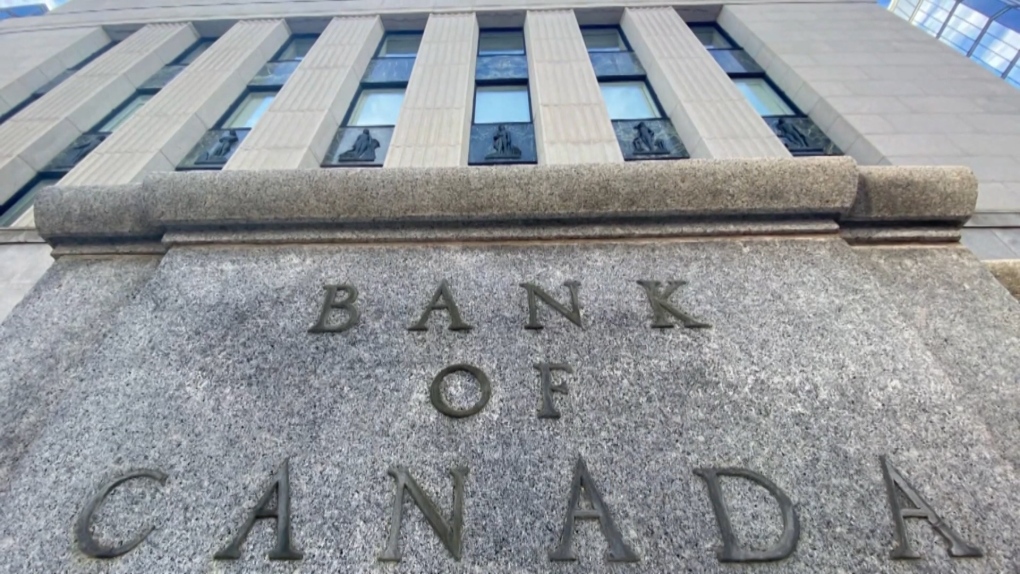Inflation appears to have peaked, but is still hot and an oversized rate hike from the Bank of Canada next week is widely expected.
Some economists believe Wednesday’s rise could be the last for some time.
“We believe that by October we may be well enough positioned for the bank to pause and review how the economy is responding,” said Karyne Charbonneau, CIBC’s chief economics officer.
The September rate review comes at a critical time for the Canadian economy.
With gasoline prices falling, the year-over-year inflation rate was 7.6% in July, down from 8.1% in June. Second quarter GDP rose relative to the first three months of the year, although this slowed towards the end of the period and a preliminary estimate suggests a contraction in July. Meanwhile, the unemployment rate remains at a historically low level.
Despite the decline in the inflation rate, Bank of Canada Governor Tiff Macklem said in an August 16 op-ed that high inflation for nearly 40 years was still a major concern.
“Inflation in Canada has come down a bit, but it’s still far too high,” Macklem wrote. “We know our job isn’t done yet – it won’t be until inflation returns to the 2% target.”
Some of Canada’s major banks expect the central bank to raise the key interest rate by three-quarters of a percentage point to 3.25%.
In a well-attended speech last week, US Federal Reserve Chairman Jerome Powell delivered a clear message on his own rate hike cycle, saying the Fed is likely to impose larger interest rate hikes in the coming months. His message that the US central bank will remain aggressive on interest rates has led some observers to speculate that the Bank of Canada’s September 7 hike could even be a full percentage point.
The bank raised its policy rate in July by a full percentage point – the biggest single rate increase since August 1998 after a series of hikes that began in March. Previously, the rate was 0.25% where it had been since it was reduced to near zero at the start of the pandemic.
Higher interest rates translate into higher lending rates across the economy, making it more expensive for Canadians and businesses to borrow money. The central bank hopes that by raising the cost of debt, spending in the economy will slow and inflation will slow.
However, senior economist David Macdonald of the Canadian Center for Policy Alternatives warns that the rapid pace of increases could have serious repercussions due to the high level of corporate and household debt in the economy.
In his latest analysis, Macdonald said private sector debt amounted to 225% of the country’s gross domestic product. By comparison, the last time the bank raised interest rates so quickly was in 1995, when private sector debt stood at 142% of GDP.
This higher level of debt, he says, will make it more difficult to achieve the bank’s desired “soft landing”, where interest rate hikes lower inflation without triggering a recession.
“What I really wanted to bring out in this analysis is the fact that private sector debt is much higher today than it was in the 1980s 1/8 and 3/8 years 1990s and earlier periods where we saw this kind of rapid rate increase,” Macdonald said. “And why that matters, of course, is that it’s not just the interest rate that matters, the interest rate is charged on something. It’s charged on private sector debt.”
Macdonald called for alternative solutions to calm inflation using federal government rather than central bank policy.
Some of his recommendations include changing mortgage underwriting rules for investors to cool house prices and extending the new tax on excess corporate profits beyond financial institutions.
However, Christopher Ragan of McGill University’s Max Bell School of Public Policy said the central bank is best placed to take responsibility for keeping interest rates low.
“There are very, very good reasons why we have an operationally independent central bank trying to target inflation rather than governments, because governments in the past have done a very poor job of that.” , did he declare.
Ragan said the independence of the Bank of Canada allows it to act forcefully in the face of inflation, when any government intervention would be highly political. Still, Ragan says bringing inflation down with interest rate hikes is painful.
“That’s actually why it’s so important never to let inflation skyrocket,” Ragan said. “Because it’s not just that high inflation is bad, it’s that cutting high inflation down to low inflation hurts a lot.”
This report from The Canadian Press was first published on September 2, 2022.

“Evil alcohol lover. Twitter junkie. Future teen idol. Reader. Food aficionado. Introvert. Coffee evangelist. Typical bacon enthusiast.”
